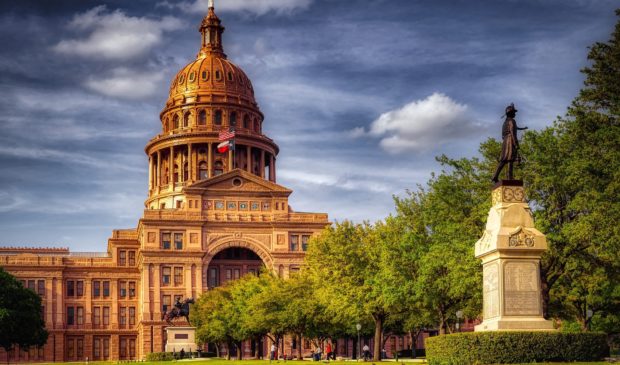Austin gets ready for Texas Legislature
Wednesday, September 30, 2020 by
Jo Clifton When Texas legislators return to the state capital in January they can expect to face a $4.6 billion budget deficit, according to a prediction from Comptroller Glenn Hegar. The deficit is a result of the pandemic and associated economic decline, along with lower oil prices, Hegar said. Just a year ago, the comptroller was predicting a $2.89 billion surplus. But every state will be facing a similar shortfall, with many experiencing worse economies than Texas.
While figuring out how to deal with that deficit is the first job of any legislature, in spite of the pandemic there will be at least some of the usual attacks on the authority of municipalities, particularly Austin. But Austin is getting ready. City Council approved a broad and lengthy agenda at its Sept. 17 meeting. The city’s lobby team, led by Intergovernmental Relations Officer Brie Franco, could have a full plate come January, but the pandemic makes it hard to predict. Nevertheless, Council had more items to add to an already full plate.
Among a multitude of other issues, Council has directed the city’s lobby team to oppose any legislation “that negatively affects the city’s financial ability to act in the best interests of Austin’s residents or reduces the city’s AAA bond rating.” Those actions might include imposing a more restrictive revenue cap, lowering the homestead appraisal cap or expanding the appraisal cap to non-homestead properties.
The agenda also states that the city manager shall use the city’s Intergovernmental Relations team to “oppose legislation that attempts to diminish the city’s ability to govern its residents’ investment in municipally owned utilities or that negatively impacts the current status of Austin Energy, including rate cases approved by the City Council.”
In addition, of course, the city’s team will be on the lookout for legislation that threatens the city’s authority to promote what the city considers to be appropriate land use and zoning regulations, building codes and planning requirements. Council Member Leslie Pool, in particular, wanted the team to support “inclusionary zoning.” The Legislature outlawed inclusionary zoning several years ago to prevent Austin and other cities from requiring developers to provide housing for low-income residents in order to get specific zoning or permits for market-rate housing.
The team is also charged with resisting legislative efforts to prohibit or restrict the city’s ability to speak with and attempt to influence legislators on behalf of Austin residents.
The city will be supporting legislation to create higher water conservation standards for plumbing fixtures, irrigation, landscape practices and sustainable water reuse, according to its agenda. And speaking of plumbing, in 2019 legislators left town at the end of their session without reauthorizing the state board that licenses plumbers. The plumbers were naturally unhappy about that because it meant any unlicensed person with a wrench could call himself a plumber and compete with people who have licenses. Gov. Greg Abbott’s solution was not to call a special session, but to say he had the authority to reauthorize the board for two years because Texans still recovering from Hurricane Harvey really needed licensed plumbers.
Council Member Greg Casar told his colleagues he had received numerous calls and emails from plumbers who wanted to make sure their board would be reauthorized when legislators come back to town in January. That, at least, does not seem controversial, and the item was added to the agenda.
Council Member Alison Alter said she wanted to make sure that the legislative agenda included efforts to provide support for sexual assault victims, and to make sure that the State Auditor’s Office completes its audit of the investigation and processing of sexual assault cases in Texas and the clearing of rape kit backlogs. Her colleagues agreed.
The Austin Monitor’s work is made possible by donations from the community. Though our reporting covers donors from time to time, we are careful to keep business and editorial efforts separate while maintaining transparency. A complete list of donors is available here, and our code of ethics is explained here.
You're a community leader
And we’re honored you look to us for serious, in-depth news. You know a strong community needs local and dedicated watchdog reporting. We’re here for you and that won’t change. Now will you take the powerful next step and support our nonprofit news organization?



